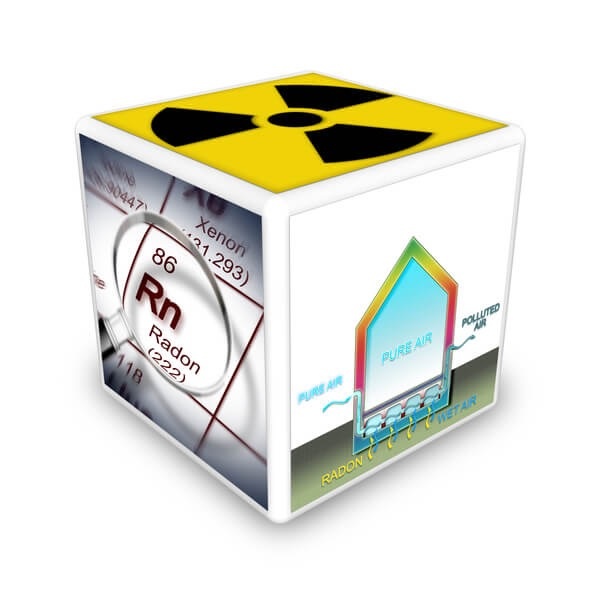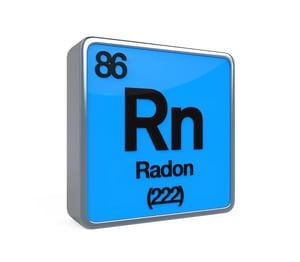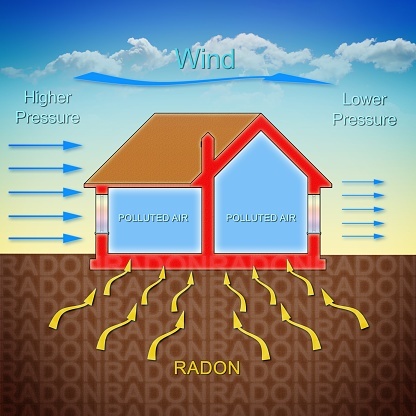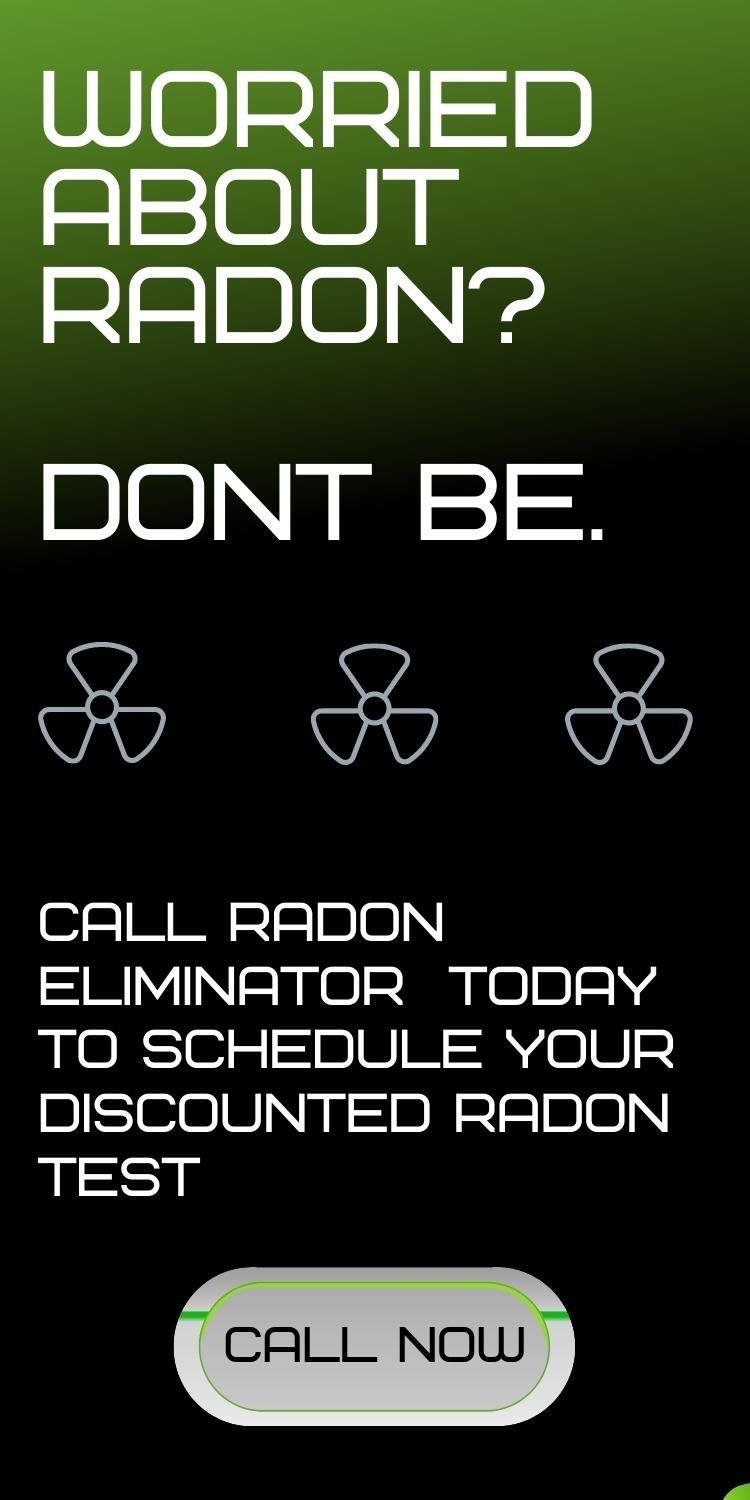YES!
Even single type of home is susceptible to radon gas regardless if there is a basement or not. 
If you live in a split level, ranch, 2nd floor apartment, or a 2-story home with a basement, radon is a potential threat to you.
Why? Because radon comes up out of the ground and enters the home through its foundation, which every home has, each house is susceptible to radon gas.
It makes no difference if the building is old, new, insulated, or drafty. All types of homes are at risk of radon whether or not they have a basement.
An ounce of prevention is worth a pound of cure. Read our blog post: "Radon Poisoning Prevention in 2 Steps."
Table of Contents
- How Radon Enters a Home
- Is Radon Exposure Due to the Type of Soil you Home was Built On?
- Schedule a Discounted Radon Test
How does it happen?
There are many ways that radon can enter into a home.
4 main ways are:
- cracks in the foundation
- well water
- exposed soil such as a crawl space
- building joints
To learn more about how Radon enters your home check out this link!
Basically, wherever the building makes contact with the soil is at risk of radon regardless if it is through a basement or not.
So, now you might be wondering if the Radon exposure is due to the soil your home was built on?
The answer is, Yes....kind of!
Homes built on all types of surfaces have radon problem; however, some homes are built on foundations that contain large amounts of natural stones like limestone, granite, and other quarry rocks.
When certain rocks begin to decompose, and erode, radon gas is emitted.
After a certain period of time, homes begin to settle, and because the concrete foundation is not flexible, it will crack.
This is how the radon gas gets into your home. 
If you have a basement, it is easier for the radon to get in to your home due to the large amounts of pressure put onto the structure, but this does not mean that homes without basements don't have to worry.
Homes that are more elevated, and have a more ventilated living space are undoubtedly less likely to have high levels of radon gas.
But regardless of how elevated or ventilated the home is, it is still able to fall victim to radon gas. No home is completely safe from the dangers of radon gas.
This is why it is so important to get all types of homes tested for radon.
Click the link below to schedule your radon test with Radon Eliminator today!





